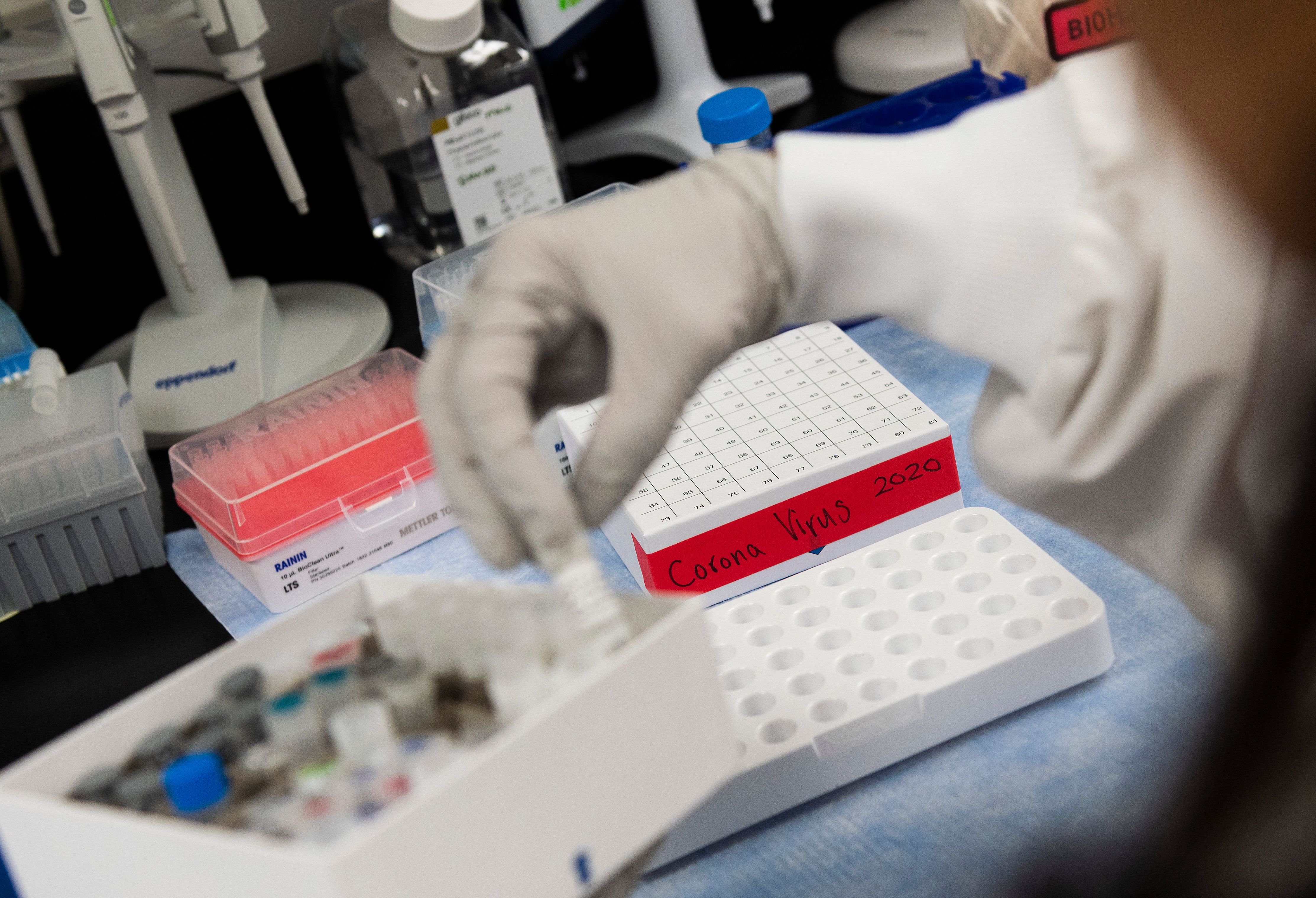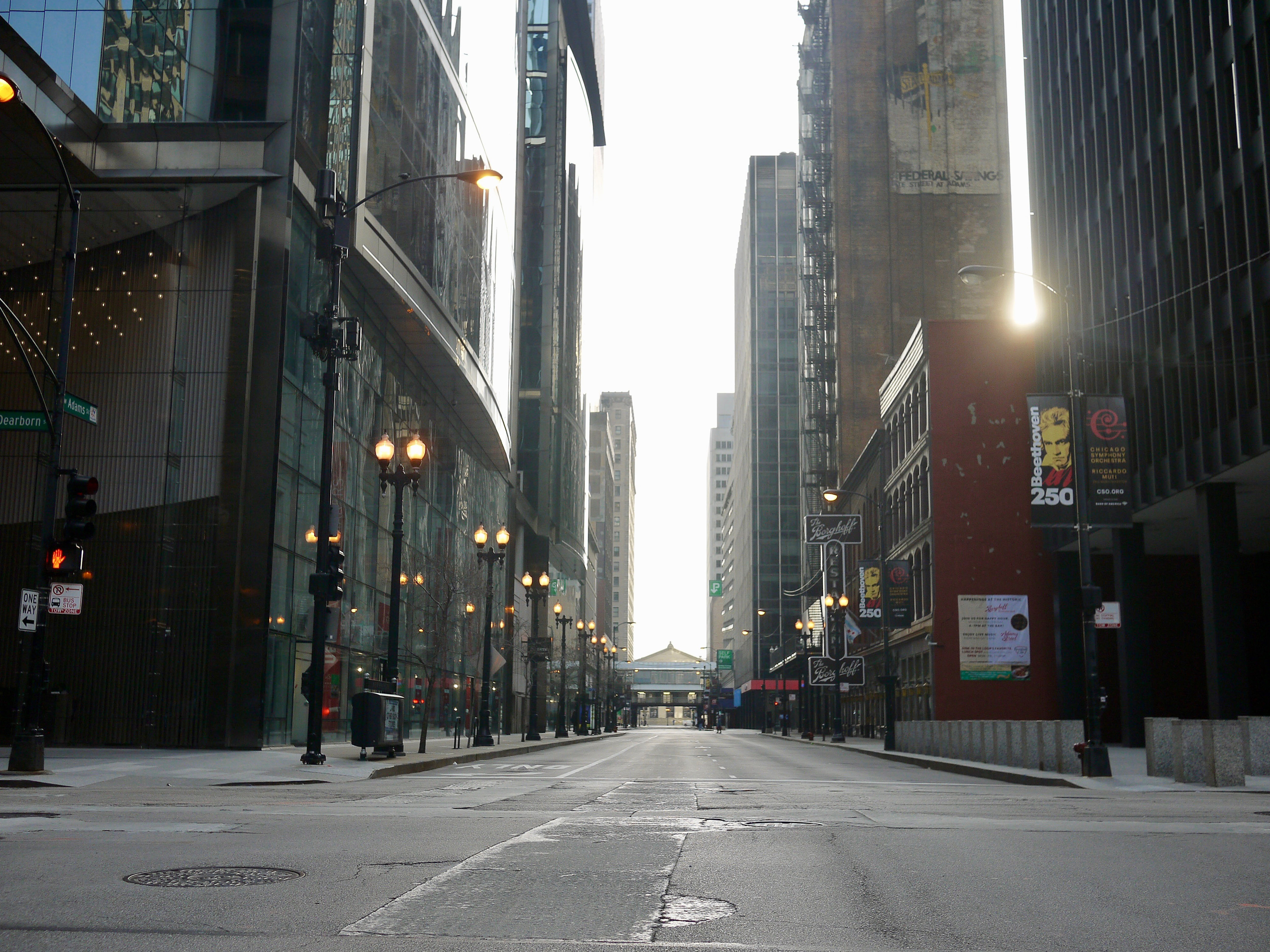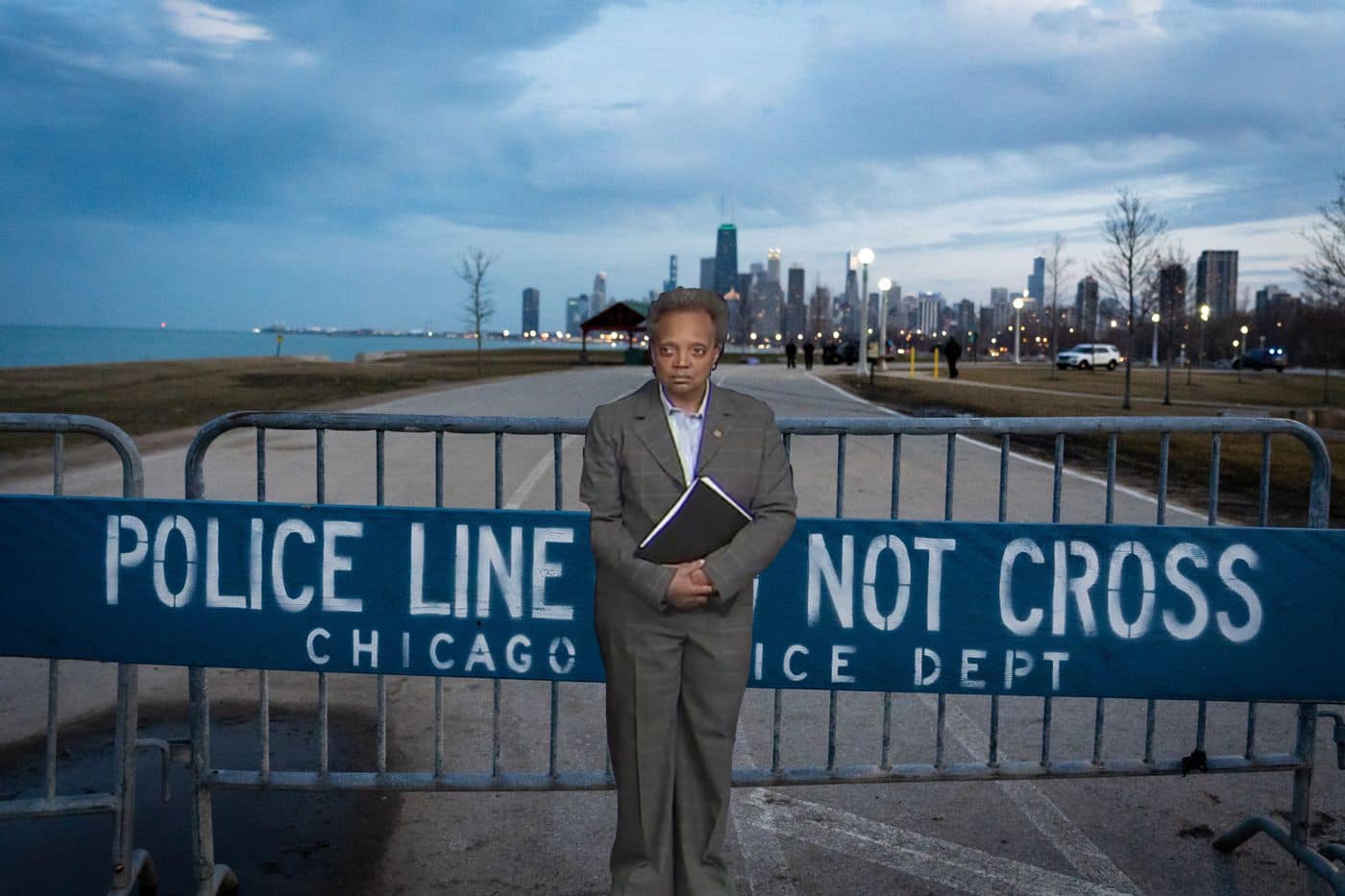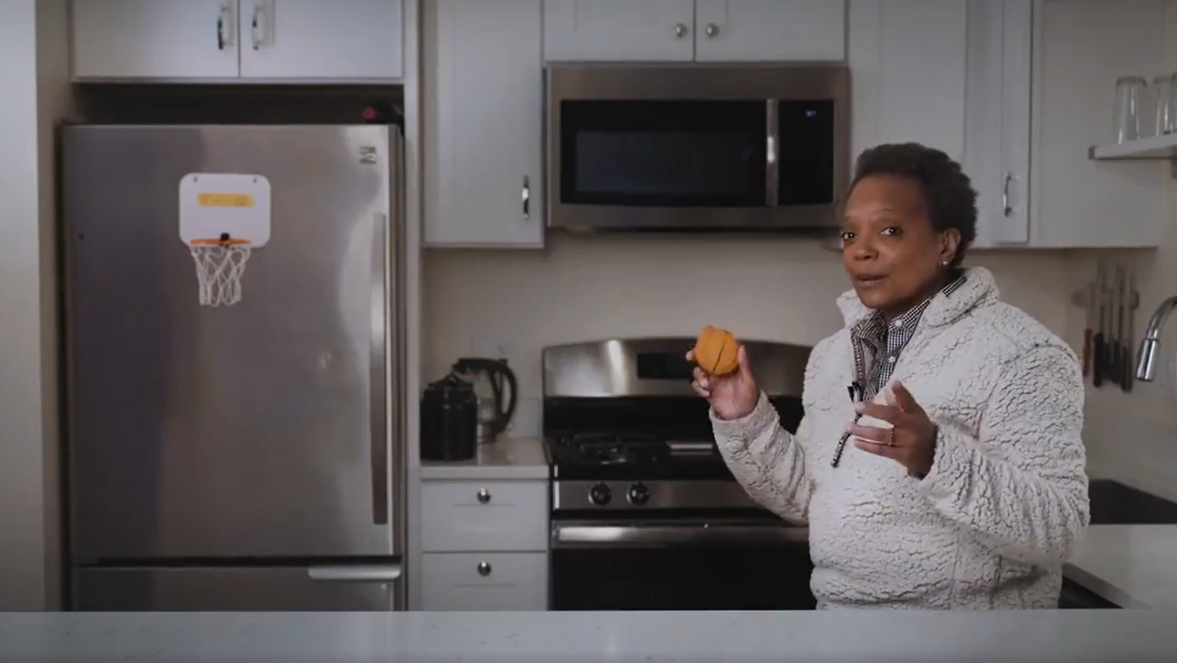Illinois Gov. J.B. Pritzker now recommends residents wear masks or cover their mouths in some way if they must go outside during the statewide stay-at-home order.
"There’s a reason that we’re raised to cover your mouth or use your elbow when you cough and sneeze. It’s a simple gesture to reduce the number of germs that you spread to those around you," Pritzker said during his Friday coronavirus briefing. "The doctors all agree that this virus can be spread through droplets like when you sneeze or cough, so blocking that by wearing a mask in public seems like a common sense way to do what’s right for everyone around you."
The updated guidance comes as scientists say more evidence indicates the virus could be spread by asymptomatic people.
"The most important thing you can do frankly, is stay home, but when you do go outside or when you must go to the grocery store or pharmacy, wearing something to cover your face based upon what the science say," Pritzker said. "Maybe it’s a homemade fabric mask or maybe it’s a manufactured general medical mask - really just something to cover your nose and mouth out of courtesy to those around you in case you're one of those who are asymptomatic or pre-symptomatic people and who could be spreading the virus.Wearing a mask is just one more way that we can help take care of each other."
Soon after Pritzker's announcement, the U.S. Centers for Disease Control and Prevention announced new guidelines recommending the use of cloth materials and basic masks to cover faces. In his Friday briefing, President Donald Trump suggested that if people wanted to voluntarily cover their faces with cloth materials or basic masks, that they do so with items that could be home-made, washed and reused.
The recommendation does not extend to medical-grade face masks, including surgical masks and N95 masks, Trump said, adding that those should be reserved for medical professionals.
Both Pritzker and Illinois Department of Public Health Director Dr. Ngozi Ezike previously said they wouldn't advocate against residents wearing masks "but it does not replace staying at home."
"Not one practice alone will do it," Ezike said. "We need the full cache of all these practices. Everything will be additive, cumulative to decreasing the spread and flattening the curve."
Information on how coronavirus infections spread and recommendations for preventing them have changed since the virus' introduction in the U.S. In the initial months of the pandemic, health officials based their response on the belief that most of the spread came from people who were sneezing or coughing droplets that contained the virus.
The federal government recently issued new guidance warning that anyone exposed to the disease can be considered a carrier.
The CDC also quietly updated its guidance in recent weeks, saying hospitals that run low on N95 or surgical masks should consider ways to reuse them or to use them through an entire shift. And if hospitals run out, the CDC said, scarfs or bandanas could be used ”as a last resort,” though some health officials warned cloth masks might not work.
Overall, health officials say masks are less about protecting the person wearing them and more about preventing someone from spreading the virus.
"When we say cover your cough the point of covering your cough is that you're not letting those droplets go on to the person in front of you," Ezike said. "Essentially, similar to the advice of wearing a mask."
In Chicago and across the state, health officials already recommend all healthcare workers caring for vulnerable populations in long-term care facility settings "wear masks at all times," Chicago Department of Public Health Commissioner Allison Arwady said Wednesday.
Still, officials cautioned that wearing a mask doesn't make it safe to leave your home.
"I don't want people to think the mask makes them invincible because it doesn't," Chicago Mayor Lori Lightfoot said. "While the guidance may be updated, and we'll certainly let the public know if that's the direction things go... I don't want people to be misled."
Illinois has so far reported nearly 9,000 confirmed cases statewide with more than 200 deaths and Friday marked the state's largest single-day spike in cases.





